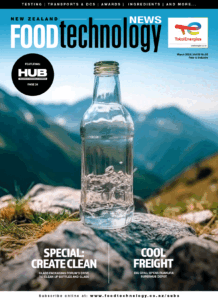
Director of Culinary Innovation and Operations at HelloFresh dietitian Hannah Gilbert
If you’re feeling guilty about those leftovers you tossed in the bin last night, it turns out you’re not alone.
New research from HelloFresh has found that more than 70% of New Zealand households discard uneaten food every week.
Of the 1000 New Zealanders surveyed, three quarters (76%) discard food worth up to $25 each week. This represents $3billion in food wastage across the country annually.
The study also found that the waste comes with an emotional toll. Seventy-three per cent of New Zealanders feel guilty about throwing away food while women and young adults seem to cop the most guilt.
Leftover cooked meals are the most likely food waste, making up 30% of responses, with uneaten fruit and vegetables next most common on 27% and baked goods such as bread-making up a tenth of food waste.
Those living alone were the group most likely to have leftover bread or baked goods potentially due to less smaller portion sizes available from food retailers such as supermarkets.
The HelloFresh research also shows 30% of Kiwi households have made an effort to reduce food waste as a result of COVID.
Director of Culinary Innovation and Operations at HelloFresh, dietitian Hannah Gilbert, says the meal kit model has inherent advantages in meal planning and reducing food waste at home – compared to traditional grocery shopping.
“By having weekly recipes planned and ingredients pre-portioned and delivered to our customers, it means people are less likely to over shop or look to takeaway options during the week.”
“The exact portion sizes are then provided in each meal kit which means families will also be left with basically zero food waste,” she says.
Gilbert says any surplus food is donated to local food charities such as KiwiHarvest.
KiwiHarvest, a national food rescue charity, collects food from retailers before it goes to waste and distributes it to those in need.
KiwiHarvest general manager, Blandina Diamond, says the surplus food is used to support the thousands of Kiwi families and communities who are struggling financially.
“With the country feeling the tail of economic fallout from the pandemic, the need for food charities has soared. Latest figures suggest the ‘new normal’ could see increases in demand from those facing financial hardship of 40% per annum.”


































































































